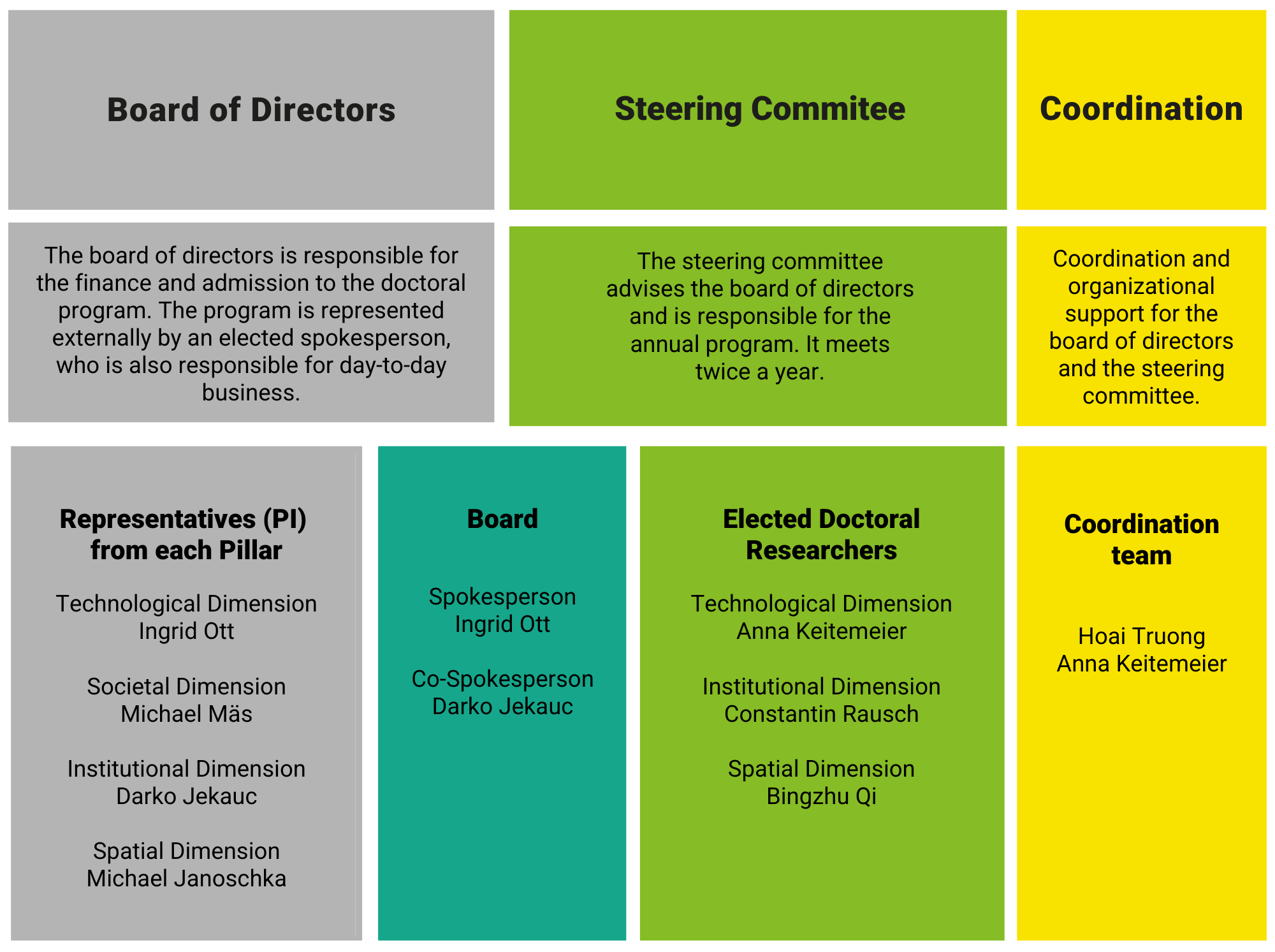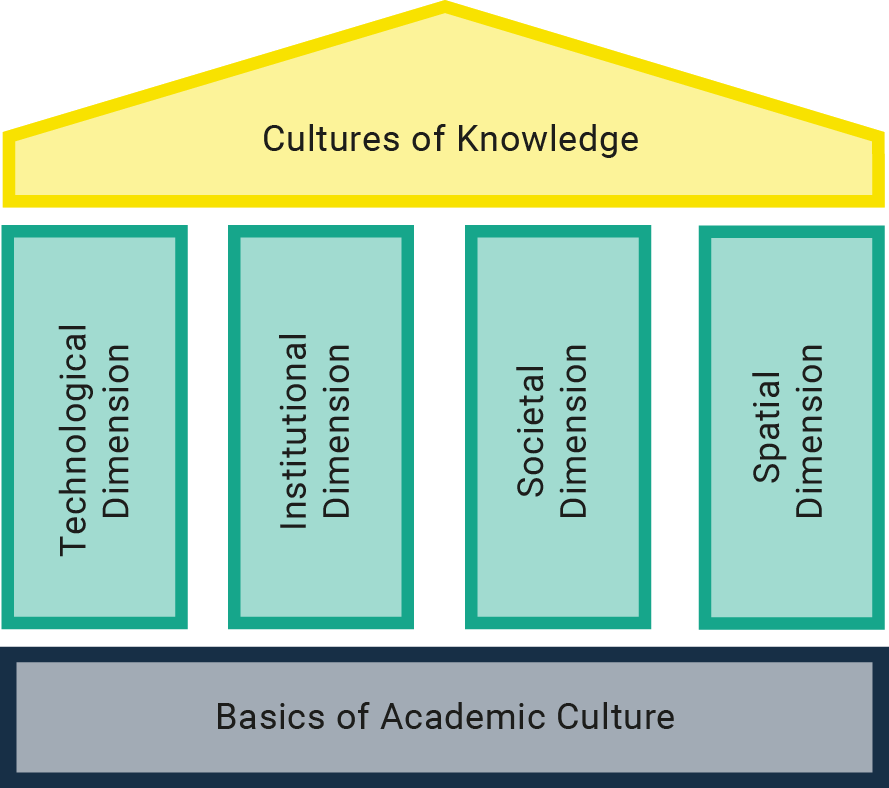Mission of the Graduate School
The KIT Graduate School Cultures of Knowledge (CuKnow) at the KIT Center Humans and Technology (MuT) connects PhD students from the humanities, social sciences, natural sciences, and engineering at KIT and offers a place for inter- and transdisciplinary exchange, learning, and research. Members critically analyze and question "knowledge" in science and society, engaging in dialogue with public stakeholders. MuT is a platform that facilitates interdisciplinary research on human-technology relations in the context of transformation processes.
Governance of the Graduate School


What does the education and training program look like?
The Graduate School offers excellent doctoral conditions through an extensive education and training program in three areas:


Prof. Dr. Ingrid Ott
Chair of Economic Policy Institute of Economics (ECON)
E-Mail: ingrid.ott∂kit.edu
Prof. Dr. Darko Jekauc
Head of the Health Education and Sport Psychology Department (IfSS)
E-Mail: darko.jekauc∂kit.edu
Hoai Truong & Anna Keitemeier
KIT-Center Humans and Technology
E-Mail: coordination∂cuknow.kit.edu
